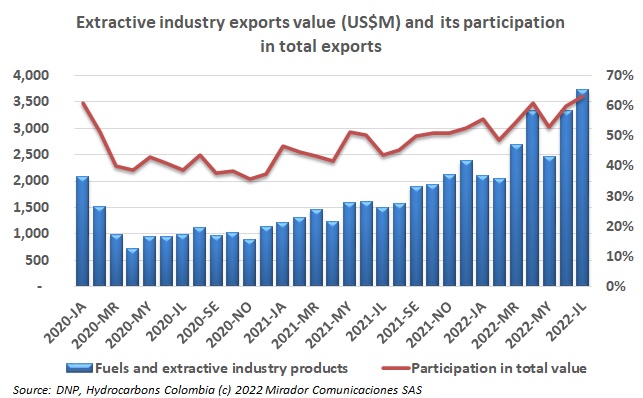
President Gustavo Petro spoke about the need to increase gasoline prices in the country, due to the deficit of the Fuel Price Stabilization Fund (FEPC).
The Minister of Finance (MinHacienda), José Antonio Ocampo, spoke about Colombian exports and the relevance of the oil sector in this issue.
At a recent meeting of the Colombia-Canada Chamber of Commerce’s Mining and Energy Committee, ECIJA Colombia’s Lorena Garnica gave an overview of the Court’s decision and some recommendations for investors. Based on the ruling of the Constitutional Court of Colombia number SU288 of 2022, the proof standard for rural private property in Colombia is more rigorous.
President Gustavo Petro participated in the closing of the National Mining Congress, giving statements on exploration and taxes for the sector.
The State Council issued a historic decision on environmental and mining matters. This is what the Minister of Environment (MinAmbiente), Susana Muhamad, said.
The National Association of Financial Institutions (ANIF) spoke about the role of the refining sector in Colombia’s energy self-sufficiency.

The National Administrative Department of Statistics (DANE) reported the value of Colombian exports during July 2022.
Authorities are currently discussing a project that could potentially allow rural dwellers to participate in prior consultation processes.
The National Hydrocarbons Agency (ANH) published Resolution No. 948, which establishes regulations against escaping gas.
The government of Gustavo Petro ratified its commitment to a more “sustainable economic model”, seeking to bet on the tourism sector, as suppose to boosting projects from the extractive industry. How viable is this plan?